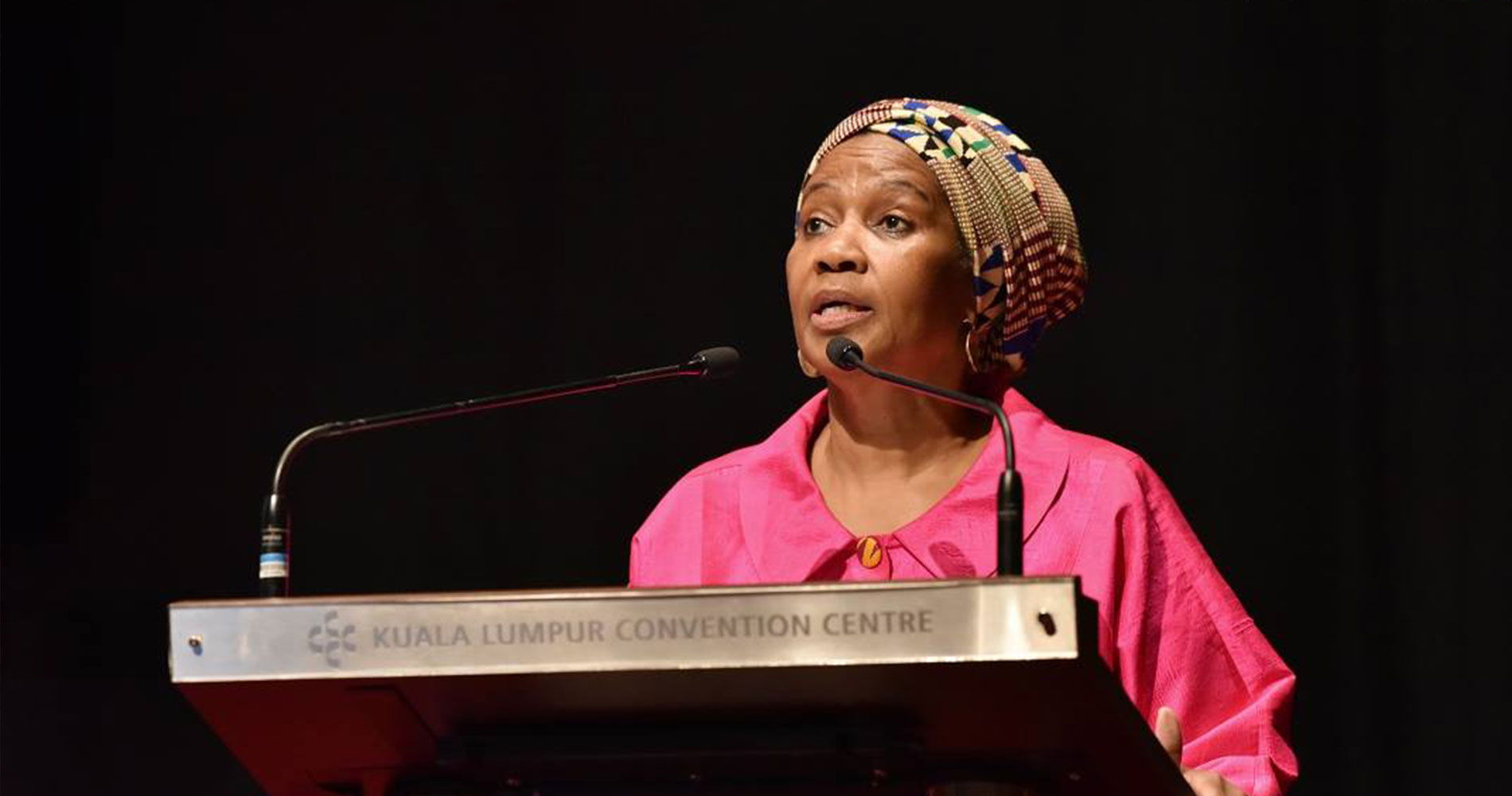
Plenary Hall, 29 November: Under Secretary-General & Executive Director of UN Women, Dr Phumzile Mlambo-Ngcuka, highlighted the discriminatory practices that were hindering women and girls from access to and inclusion in higher education in her keynote address.
She noted the need for intervention to counter such practices and the importance of having adequate policies and programmes so that they do not remain marginalised.
Dr Mlambo-Ngcuka said the UN's 17 sustainable development goals were aimed at providing everyone equal access, and that education and women were at the centre of these goals.
She urged Commonwealth members in the field of open and distance education to share their skills, resources and insights to improve access and inclusion.
Speaking against female genital mutilation, early marriage and violence against women, she said conventional education was unable to counter these ills. Instead, open, distance and online education could serve a higher purpose to resolve these issues. “UN Women seeks to engage men in helping to resolve these issues as they affect both genders,” she added.
Dr Mlambo-Ngcuka said open, online and flexible education could help even those affected by war such as the Yazidi women of Syria. “Distance learning has come such a long way, in fact distance is no longer an issue. Instead, it is access that has become an issue.”
She said UN Women was developing an open skills school to provide open and distance learning for women and thanked COL for agreeing to work together in implementing this initiative. “We look forward to collaborating with other parties as well in realising the 17 UN goals,” she concluded.